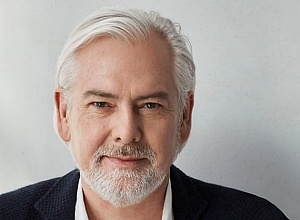Society’s desire for a new approach to addressing smoking is clear. Better choices exist for people who would otherwise continue to smoke, writes Jacek Olczak, the newly appointed Chief Executive Officer of Philip Morris International. So, the crucial question now is: how quickly we can turn this opportunity for progress into reality for the hundreds of millions of adult smokers in the world today?
Olczak outlined PMI’s smoke-free world strategy in this sponsored editorial*, as his appointment was formally announced following the company’s 2021 annual shareholders meeting on 5 May 2021:
This will be a year of important decisions on how to rebuild, reset and address the many challenges ahead. And while the response to our most immediate challenge – the global COVID-19 pandemic – is far from perfect or complete, it underscores an immense potential for progress that cannot be overlooked.
A remarkable mobilisation among scientists, governments, the public health community and businesses achieved something that no one would have thought to be possible before: the development and distribution of vaccines for a newly discovered virus, in less than a year.
To be sure, important issues remain in terms of global access and deployment, along with a pressing need to address misinformation and distrust. But these cannot diminish this incredible feat, which should serve as a reminder of how far we can go when science prevails and everyone works together with a sense of urgency and a common purpose.
Could this example inspire a new approach in addressing other global challenges? I certainly hope it will, considering the size and complexity of the issues ahead of us.
Reaffirming the magnitude of the task at hand, 22,500 respondents in an international survey conducted in December 2020 by research firm Povaddo and commissioned by Philip Morris International, indicated that a vast majority of respondents are looking for governments to dedicate time and resources to matters that range from improving the economy and ensuring better healthcare for all to combating climate change and reducing smoking rates.
As far as addressing smoking is concerned, from my position at PMI I know for a fact that there’s significant opportunity for progress.
We have transformed our business to deliver a smoke-free future and understand that we can get there faster if regulators and the public health community embrace a more contemporary and science-driven approach, one that encourages innovation and invites open collaboration.
Crucially, society expects nothing less. The latest survey shows a significant majority (73%) of respondents want governments to consider the role alternative products can play in making their country smoke-free. In contrast, just one in four respondents agreed that more regulation on cigarettes is all that is needed to achieve this.
Overall, 71% of the people surveyed agree that encouraging men and women who would otherwise continue to smoke cigarettes to completely switch to smoke-free alternatives can complement other efforts to reduce the societal harm caused by cigarettes.
It is because of innovations in science and technology that these products exist today and a future without cigarettes is possible. And we, as a society, can affect the speed at which we’ll get there.
For PMI, our objective, path and pace are clear.
We’ve made the decision to focus our resources on developing, scientifically substantiating and responsibly commercialising smoke-free products, with the aim of completely replacing cigarettes as soon as possible – in fact, we believe that with the right regulatory encouragement and support from civil society this can be done within10 to 15 years in many countries.
As a year of defining decisions for public health, 2021 could also define how fast we can eradicate smoking.
With the 9th Conference of Parties of the WHO Framework Convention on Tobacco Control convening in November, there is opportunity for governments to assess the science behind smoke-free alternatives, examine the facts, and decide how best to respond to society’s demand for a new approach that enables the men and women who would otherwise continue to smoke to make better choices for themselves.
To be clear, the best choice for people who smoke is to quit cigarettes and nicotine altogether. And of course, the efforts to protect minors from smoking, prevent initiation, and promote cessation must continue to be a priority. But we cannot deny those adults who don’t quit the opportunity to switch to better alternatives.
Society’s desire for a new approach in addressing smoking is clear. Better choices exist for people who would otherwise continue to smoke. So, the crucial question now is: How quickly we can turn this opportunity for progress into reality for the hundreds of millions of adult smokers in the world today?
I am convinced that to get to a smoke-free future faster, we need to let science lead and encourage fact-based conversations that are transparent and inclusive of all stakeholders who can contribute to change. If our shared experience this past year has taught us anything, it is that in the face of a pressing problem there’s neither time to waste nor room for ideologies and unsubstantiated beliefs.
Solutions are born out of facts, collaboration and open minds.
SEE ALSO FROM THE MEDICALBRIEF ARCHIVES
E-cigarettes: What we know and what we don’t – Cancer Research UK
Tens of millions of smokers have switched to less risky nicotine products
WHO versus Public Health England over e-cigarettes
South Africans support innovative approaches to smoking harm reduction – Global survey
Tobacco harm reduction – In science we trust
The health pros and cons of e-cigarettes – Evidence ambivalence
Tobacco harm reduction to reduce smoking rates in South Africa

